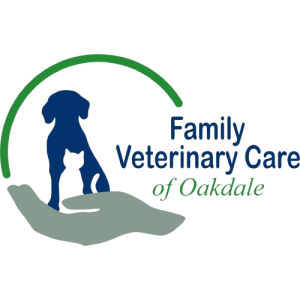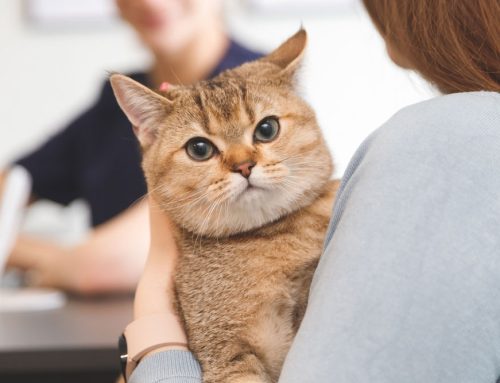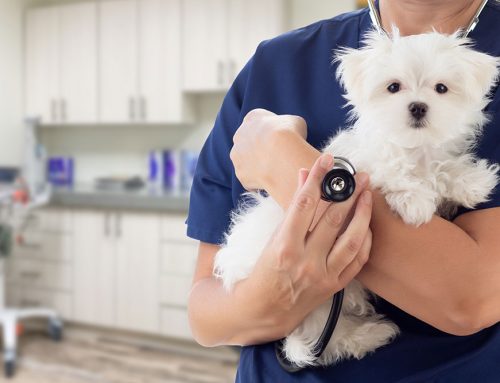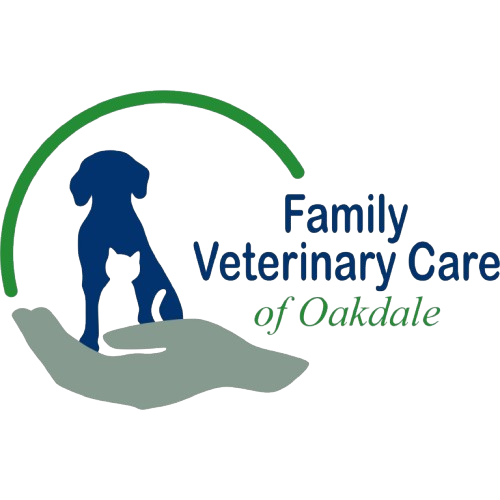Routine wellness screenings are an important part of your pet’s health care plan and can improve their quality and quantity of life. Our Family Veterinary Care of Oakdale team is committed to ensuring your pet is as healthy as possible. We explain the benefits of regular wellness visits for your pet.
#1: Routine wellness visits establish your pet’s normal baseline
You know your pet is unique and special, and so is their medical information. Parameters have been established for cat and dog vital signs and laboratory values, but “normal” covers a wide range. When we evaluate your pet while they are healthy, our team can establish a normal baseline and better determine when health issues affect them. Tracking these values regularly provides valuable information regarding your pet’s health status.
#2: Routine wellness visits facilitate early detection of pet health issues
Your pet doesn’t have to worry about predators while reclining on your bed, but they retain their ancestors’ instincts to hide vulnerabilities such as pain and illness, meaning that they typically don’t exhibit disease signs until their condition is advanced. Diagnostics performed during a routine wellness visit help detect health conditions in the early stages, when they are easier to treat. Examples include:
- Heart disease — When auscultating your pet’s chest, our team can detect heart arrhythmias and murmurs that may indicate heart disease. If we appreciate abnormalities while listening to your pet’s heart, we may recommend further diagnostics (e.g., electrocardiogram, heart ultrasound).
- Kidney disease — Kidney disease is common in senior pets, especially older cats. Information we learn on a biochemistry profile and urinalysis, which are commonly performed during a routine wellness visit, helps us assess your pet’s kidney health.
- Diabetes — Diabetes is becoming more prevalent in pets and screening tests can help determine if your pet is affected, so treatment can be started to prevent serious complications.
- Cataracts — Pets are excellent at adjusting to vision loss, especially gradual loss. Evaluating your pet’s eyes helps us detect vision-obstructing cataracts.
#3: Routine wellness visits help prevent pet obesity
The majority of U.S. pets are overweight or obese, and excess weight increases your pet’s risk for serious health issues, such as diabetes, cancer, kidney disease, and arthritis. During a routine wellness check, we evaluate your pet’s weight status, including:
- Weighing your pet — We use an accurate pet scale to weigh your pet.
- Body condition score (BCS) — We evaluate your pet’s fat coverage at key points on their body to assign them a BCS. An ideal BCS is between four and five.
- Muscle condition score (MCS) — We visualize and palpate your pet’s muscles to grade their MCS as normal, mild loss, moderate loss, or severe loss.
If we determine your pet is overweight, we will devise a weight loss strategy to help them safely reach an ideal weight. Conversely, if your pet is underweight, we may recommend additional diagnostics to determine the cause of the weight loss.
#4: Routine wellness visits help keep your senior pet comfortable
As pets age, they are at increased risk for health related issues such as arthritis and kidney disease. Adult pets should be evaluated by a veterinary professional at least once a year, but senior pets should be examined every six months to detect conditions that impair their quality of life and begin management practices as soon as possible.
#5: Routine wellness visits promote your pet’s oral health
Most pets have some degree of dental disease by 3 years of age, and the condition can cause your pet serious issues. Bacteria are attracted to food particles in your pet’s mouth, and the sticky plaque that forms on teeth hardens into tartar. When the bacteria invade under your pet’s gum line, bad breath, swollen, bleeding gums, loose or missing teeth, oronasal fistulas, and jaw fractures, can occur. In addition, the bacteria can enter your pet’s bloodstream and damage their organs, including their heart, kidneys, and liver. During a wellness screening, we evaluate your pet’s mouth, and if we suspect dental disease, we may recommend a professional veterinary dental cleaning.
#6: Routine wellness visits include vaccinations to safeguard your pet
Many pets are vaccinated during a routine wellness check. Vaccinations are important to protect your pet against serious, life-threatening diseases. All pets require core vaccines, plus they may require non-core vaccines, which we will determine depending on their lifestyle and disease risk.
- Canine core vaccines — Core vaccines for dogs include rabies, distemper, adenovirus, parvovirus, and parainfluenza.
- Canine non-core vaccines — Non-core vaccines for dogs include leptospirosis, Lyme disease, Bordetella bronchiseptica, canine influenza virus, and Western diamondback rattlesnake.
- Feline core vaccines — Core vaccines for cats include rabies, feline herpesvirus-1, feline calcivirus, feline panleukopenia virus, and for kittens, feline leukemia.
- Feline non-core vaccines — Non-core vaccines for cats include Chlamydia felis and B. bronchiseptica, and for adult cats, feline leukemia.
#7: Routine wellness visits safeguard your pet from parasites
During a routine wellness check, your pet is screened for harmful parasites and the diseases they transmit.
- Heartworms — The American Heartworm Society recommends that dogs be tested annually for heartworms, and we can easily perform this test during your pet’s annual wellness visit.
- Tick-borne disease — Ticks transmit illnesses such as Lyme disease, anaplasmosis, and ehrlichiosis that we can screen for during your pet’s wellness exam.
- Intestinal parasites — Intestinal parasites, including roundworms, whipworms, hookworms, giardia, and coccidia, frequently target pets, so we perform a fecal check during your pet’s wellness exam to test for these parasites.
Prioritizing routine wellness visits helps keep your pet happy and healthy. Contact our Family Veterinary Care of Oakdale team to schedule your pet’s wellness exam to help improve their quality and quantity of life.











Leave A Comment